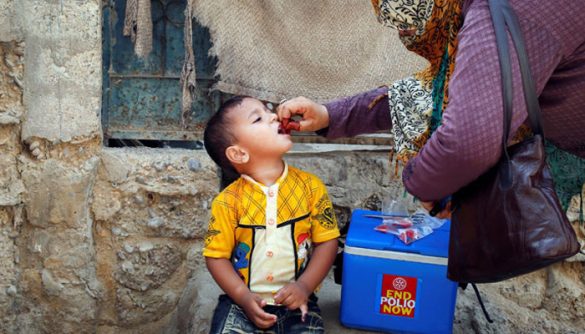Rising Screen Addiction Threatens Children’s Eyesight
The excessive use of mobile phones, tablets, and digital screens has raised serious concerns among eye specialists in Pakistan. According to experts, myopia — or nearsightedness — is rapidly increasing among young children, especially those under ten years of age.
This alarming trend was highlighted during a recent seminar organized by the Department of Pediatric Ophthalmology at Mughal Eye Trust Hospital in Lahore. The session focused on the growing link between digital screen exposure and deteriorating vision in children.
Experts Sound Alarm on Myopia Surge
Speaking at the seminar, Professor Seema Qayyum, head of the department, warned that long hours of screen exposure are physically altering the structure of children’s eyes. She explained that when children stare at screens continuously, they blink less frequently, leading to dryness, irritation, and eye strain. Over time, these habits can weaken the eye muscles and cause lasting vision damage.
Professor Qayyum revealed a worrying statistic: nearly 40% of children under ten are now suffering from some degree of myopia. She cautioned that this number could increase by about 14% each year if corrective measures are not taken.
Many young patients, she noted, already require strong prescription glasses ranging from -7 to -10 diopters, a level once seen mostly in adults. We are witnessing cases that used to appear in teenagers now emerging in children as young as six or seven, she added.
Lifestyle Factors Behind the Vision Decline
Ophthalmologists attribute this trend to the surge in screen-based learning and entertainment, particularly after the COVID-19 pandemic, which increased children’s dependence on mobile devices. Reduced outdoor activity, combined with longer indoor screen exposure, has deprived children of natural light, which is essential for healthy eye development.
Globally, the World Health Organization estimates that by 2050, half of the world’s population could be myopic, with digital screen exposure being a major contributing factor.
Experts Urge Parents to Take Preventive Steps
Eye specialists have urged parents to limit children’s screen time and encourage them to play outdoors for at least one to two hours daily. Exposure to natural light and focusing on distant objects can significantly slow the progression of myopia.
Parents are also advised to ensure regular eye check-ups, maintain proper lighting during reading or screen use, and enforce short breaks every 20 to 30 minutes of screen activity.
Professor Qayyum emphasized that early intervention is crucial. If we don’t address this now, we may face a generation struggling with chronic vision impairment, she warned.
A Growing Public Health Concern
The rising cases of childhood myopia are not just a medical issue but a public health challenge. Experts believe that greater awareness, school-based screening programs, and digital use guidelines for children are needed to prevent an eyesight crisis in the coming decades.
By adopting healthier habits today, Pakistan — and the world — can help ensure that future generations do not grow up in a blur.















